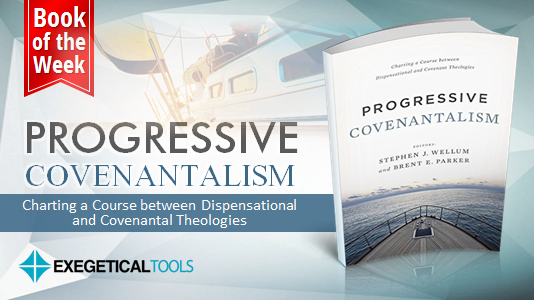
In the last two and a half centuries, biblical theology has come to the fore, and among topics in biblical theology, the role of covenant and how the covenants relate to one another looms large. Two broad approaches to the relationship between the OT covenants and the New Covenant have emerged: dispensationalism and covenantalism. While dispensationalism is newer to the scene, it has become popular in the United States in the 1900s and has earned many adherents. Both dispensationalism and covenantalism have many factions, though, so adherents lie more on a spectrum on the various issues involved.
Recently, Peter Gentry and Stephen Wellum published Kingdom through Covenant as an attempt to chart a course between dispensationalism and covenantalism. Their approach, called “progressive covenantalism,” highlights the progressive nature of biblical history as well as the central role in that progression of the covenants. They then published a condensed version called God’s Kingdom through God’s Covenants. This new book, Progressive Covenantalism, seeks to flesh out further this approach to the biblical history and to fill in gaps that were left in Kingdom through Covenant.
Even if you’re not an avowed progressive covenantalist, this book contains delightful discussions on many central issues in biblical theology. For example:
- Tom Schreiner argues that the Sabbath is not mandatory under the New Covenant.
- Ardel Caneday argues the distinction between conditional and unconditional covenants does not hold (!).
- John Meade discusses the connection between the sign of circumcision, circumcision of the heart, and water baptism. Of course he concludes that only those who have been circumcised in heart should be baptized by water, but his discussion is fruitful for all involved in the discussion.
- Chris Cowan argues that the presence of warning passages in the New Testament does not mean, as covenantal theologians argue, that the New Covenant community is mixed with unbelieving members of the New Covenant who can fall away from the covenant community.
- Stephen Wellum rejects the traditional threefold division of the law and suggests ways to apply the entire biblical law as our ethical standard.
- Richard Lucas exegetes Romans 11 and conclude there is no necessary idea of a nationalistic Israelite millennium.
- Oren Martin, building on the work of his dissertation published in the New Studies in Biblical Theology series, argues that the land promise is fulfilled in the church. The biblical storyline leads to the fulfillment of the land promise in a restored Eden in the new creation, not in a millennium on earth for ethnic Israel.
- Among a few other topics, Brent Parker tackles the relationship between Christ and the church.
Much of this work is not groundbreaking on its own, but its value lies in its connection with the Kingdom through Covenant project. The stalemate between dispensationalism and covenantalism needs a mediating position, if for nothing else than to dislodge advocates on both sides from their comfortable positions. These essays make a considerable contribution to fleshing out the position of progressive covenantalism.
I’d venture to say that those working out a systematic biblical-theological view of history will need to read both Kingdom through Covenant and these essays in Progressive Covenantalism and reckon with its framework and specific exegetical positions. Not to do so would be considered irresponsibly dismissive of what seems to be a promising paradigm. In this way, Progressive Covenantalism becomes a nearly indispensable work in the field of biblical theology.
Preview or buy it here on Amazon.

